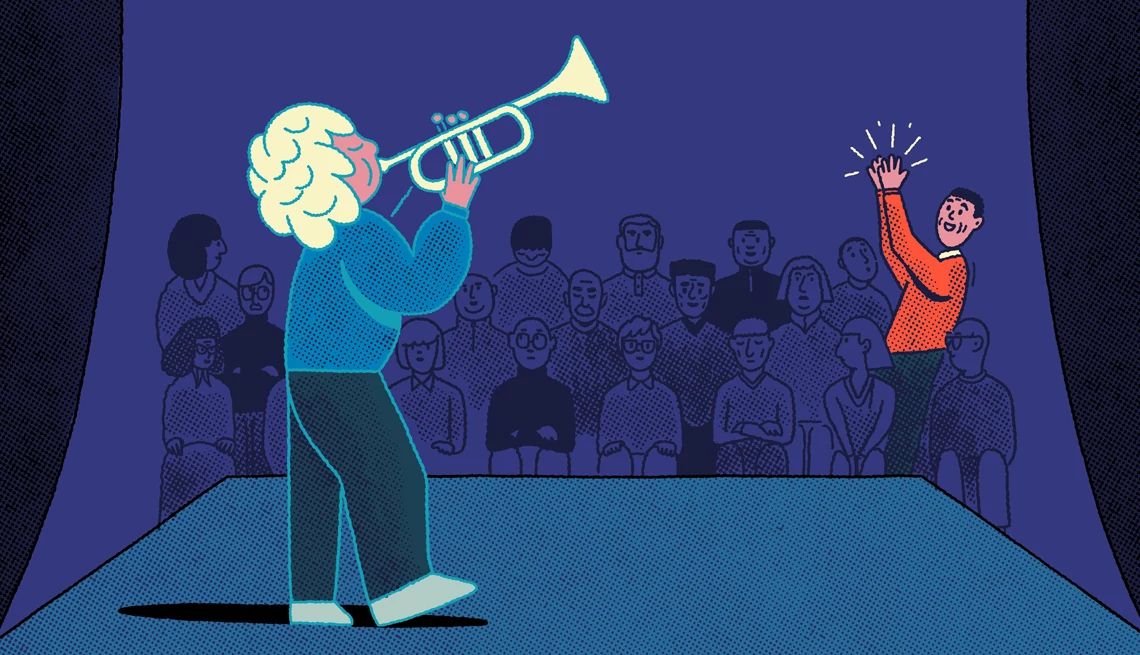AARP Hearing Center


A grandparent’s mix of life experience and unconditional love can be incredibly valuable in building a grandchild’s confidence.
“There can be something particularly special about the relationship between grandparents and their grandkids,” says Michelle Felder, a psychotherapist, parenting coach, founder and CEO of Parenting Pathfinders. “Kids can never have too many role models; it’s like having a buffet of mentors to choose from, each offering a different flavor of guidance and inspiration,” says Adolph Brown, a clinical psychologist and parenting expert on ABC’s The Parent Test.
Here are eight ways you can help your grandchildren grow into confident individuals.
1. Be a listening ear — but make sure you’re really listening
Sure, they may be speaking in Gen Z slang and you may have no idea what they are talking about (what the heck do cap, sus and bussin’ mean?), but listening to your grandkids has major benefits. A 2023 study published in the Journal of Family Psychology found that when children — especially those in single-parent households — spend time with grandparents, they see them as a source of comfort and someone to confide in.
It's a great place to use what’s called active listening. That’s when you make eye contact, give your undivided attention, ask questions, and try to refrain from passing judgment, according to UC Berkeley’s Greater Good Science Center. “Using the skill of listening to understand means gently repeating back what you hear them say,” says Landrum.
She also says to stifle the urge to always give advice unless they ask for it.
And you don’t have to sit next to each other on a couch to engage. Landrum says take advantage of making cookies together or riding in the car as moments when you can connect.
2. Encourage your grandchild to talk nicely to themselves
“How children talk to themselves plays a significant role in how they feel about themselves,” Felder says. She suggests doing your best to help your grandkids navigate a moment of self-doubt by reframing to be positive and compassionate. For example, if your grandchild says, "I’m the worst at this!" you might respond by saying, ‘You’re still learning, and mistakes are proof that you’re trying.”
You can also model this behavior in how you speak about yourself. "This can be as simple as walking by a mirror, pausing and saying out loud, ‘I love how this color looks on me!’ or ‘This new haircut looks and feels great!’” Felder says. She also suggests allowing your grandchild to witness how you talk to yourself when you make a mistake. “For example, if you accidentally break something, try to respond in a way that’s kind, compassionate, and highlights that you’ve got what it takes to handle whatever happened. This could sound like, ‘Oops! I wasn’t expecting that to happen! But, we all make mistakes sometimes, and I know just what to do to fix it.’”




































































You Might Also Like
Essay: My Dad Lives On, Through the Record Albums He Left Behind
Woman rediscovers dad by posting videos about his collection on Instagram
I Lived the Plot of a Romance Novel. Now I Write Them With Heroines Over 50
The author of ‘Flirting With Fifty,’ 61, explains that her own marriage taught her that you’re never too old for sparks to fly
I Think Tipping Has Gone Too Far. Am I a Total Cheapskate?
Nearly half of baby boomers say U.S. tipping culture has spiraled out of control